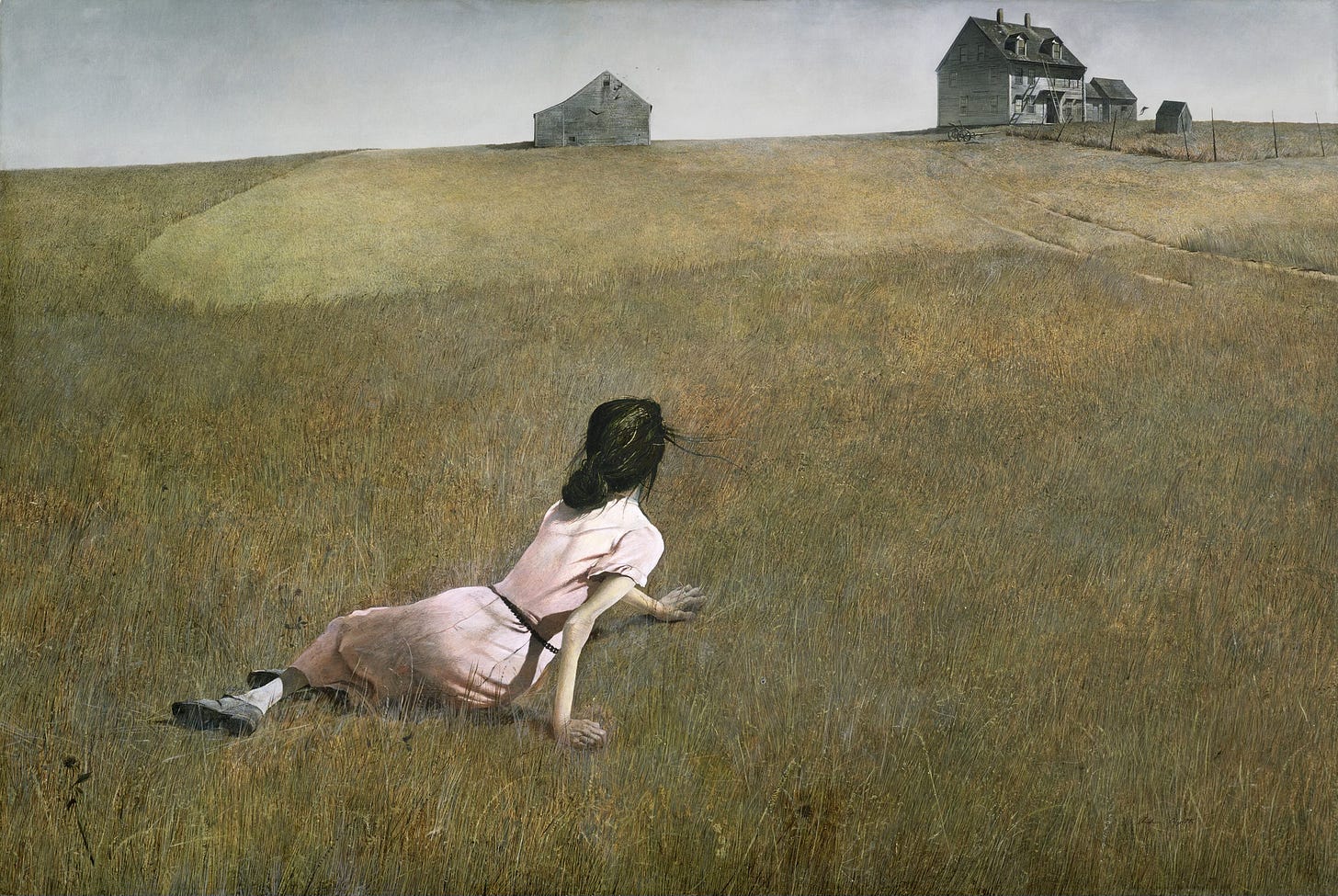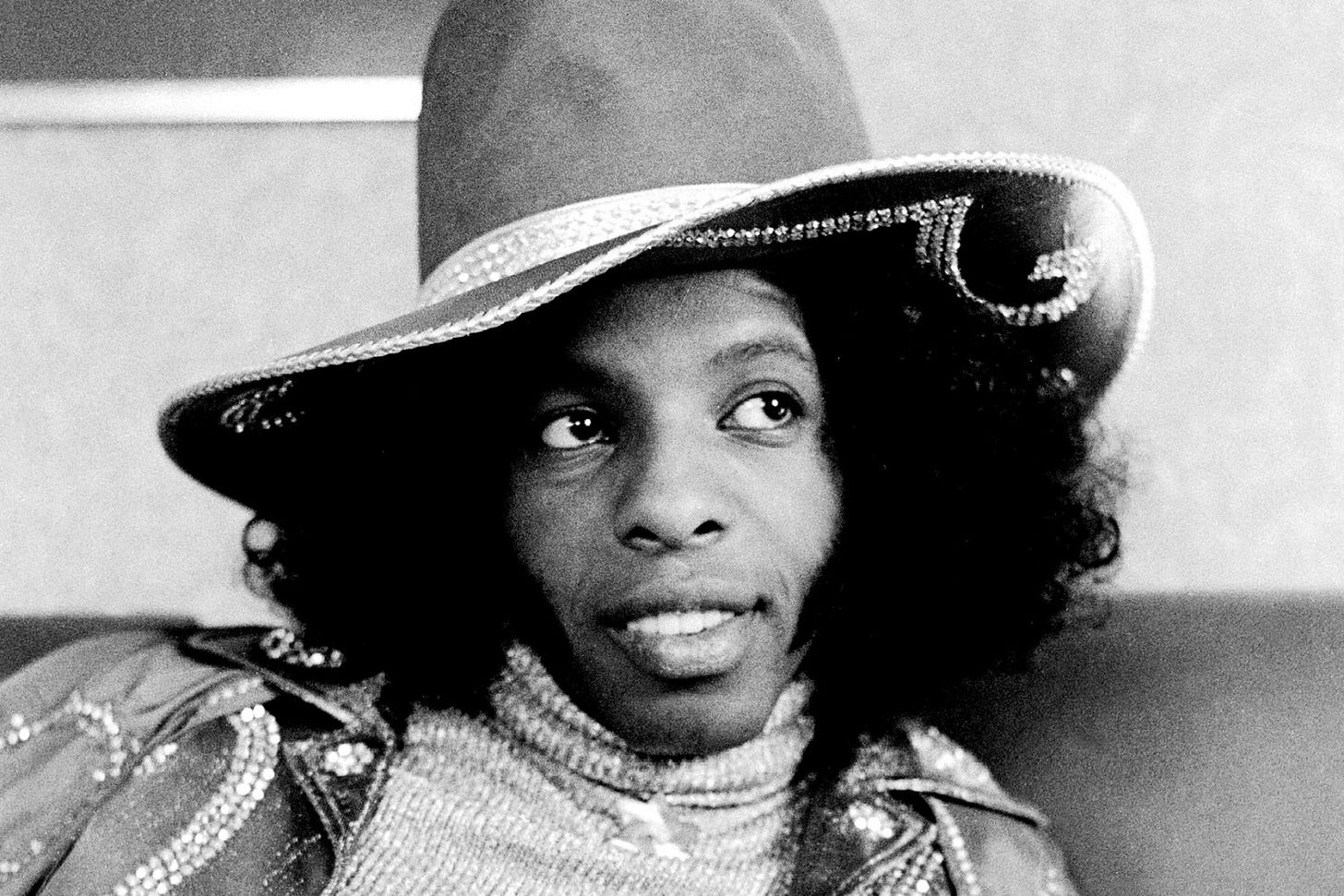There have been occasions when the passing of someone has left me unable to find the right words to express the gravity of the situation. One was my mother, and only five years after the fact, was I able to give her a proper send-off. In the case of Brian Wilson, who passed away last week at the age of 82, nothing I could have written at the time could have really done justice to his life and his work.
That hasn’t changed much on what would have been his 83rd birthday, two days after that of Paul McCartney, a man born in the same year and who filled a similar role in his band. A bigger band, the biggest there ever was or will be, but in some ways an easier role, because he had another titan on which to lean and two others who were in the eye of the hurricane.
Brian did it alone, away from his brothers and Mike Love, his familial foil; that’s how the story goes, when it focuses on Pet Sounds (nearly a Brian Wilson solo album) and SMiLE. And while I couldn’t resist taking a potshot at Love on the day the news broke, I found his statement about Brian’s passing very moving and magnanimous.
He recognized the gravity of the moment. The Beach Boys sell a promise of endless summer, sun-soaked days on the beach, fast cars, and sing-alongs around the campfire with romantic interludes between all three. That’s a reductionist view of the band. It’s merely one aspect of them.
In the first volume of Proust’s In Search of Lost Time, it is posited that it is impossible to truly know someone because one never sees every facet of them. Reducing The Beach Boys to a seaside nostalgia act is a disservice to their varied and fascinating body of work.
And the overcorrection of treating Brian Wilson as the sole member whose contributions mattered doesn’t tell the whole story and excludes the importance of Carl and Dennis Wilson as well as that of Cousin Mike. To say nothing of Al Jardine, David Marks, Bruce Johnston, Glen Campbell, and other members of The Wrecking Crew.
They all matter because without them, The Beach Boys are a far less interesting group. The Wilson Brothers, Love, and Jardine are vital for their harmonies alone. Their voices helped to translate the music Brian heard in his head—voices from another world. Contradiction is the driving force of the world. It is what makes things compelling.
That other B-Band, whose work inspired Brian to up his game, was driven by contradiction. And similarly, the commonly held view told a worse, less gripping tale. No doubt spurred on by his murder, John Lennon was revered as the true artist, the one producing the most substantive work. McCartney was the lightweight, offering up trifle: pretty melodies with nothing to say. Nothing could be further from the truth. Lennon was equally capable of lightweight stuff, just as McCartney was capable of writing something as sharply observant and pessimistic about the human condition as “Eleanor Rigby.”
And while both had respectable solo careers and put out work that was as good or better than what they did before, they were better together. Better when they had other voices in their ear, telling them what worked and what didn’t.
And when it comes to words failing, McCartney understands. This other bass-playing Gemini with a flair for melody and membership in a B-band that forever altered the musical landscape had this to say about the murder of his childhood friend and former songwriting partner: “Drag, isn’t it?” McCartney was crucified for that remark as it was seen as very glib. In actuality, Paul was being very truthful; what else was there to say that would match the gravity of the situation, his sense of loss, the complicated feelings he had about his complicated relationship with a complicated man he’d known since he was a teenager?
All the things they experienced together, all the lives they lived together. I can’t help but wonder if he thought of his mother, how she was ripped from him suddenly, with little explanation. She had cancer, something of which her children were unaware. When Paul first heard the news, he asked what they would do without her income. That may seem harsh, but he was trying to be practical and stoic about her death. He put up a brave front, but it had an impact on him. John and he bonded over their shared loss.
Children have complicated relationships with their parents. Even the best paternal figure has some rough edges. It can be hard to reconcile when you’re young and your parents are your whole world. It gets easier with time and an understanding that your parents are as fallible as you. They may seem like they have everything together and that they know everything, but that’s often for your benefit. They don’t want you to be worried that they’re worried.
Brian had to reconcile those feelings about his father, Murry. A man who was his tormentor, whose abuse allegedly left him deaf in his right ear, but also the man who inculcated a love of music within him.
Writer Charlotte Shane explores this side of Brian in her recent piece on him in N+1.
“Much of I Am Brian Wilson, written by Ben Greenman and based on months of interviews with Brian, is spent working through the fact that Murry was integral to Brian’s affinity for music and to the Beach Boys’ existence. Yes, he threw Brian against a wall when he learned his sons spent grocery money on renting instruments, but then he got them a recording deal. He bought teenaged Brian equipment and took him to concerts; he was a songwriter in his own right as well as a victim of paternal abuse. “He could be generous and guide me toward great things,” Brian said, “but he could also be brutal and belittle me and sometimes even make me regret I was alive. I learned all those things when I was too young to understand them. Maybe they are the kinds of things that you’re never supposed to understand.”
Resentment, no doubt, factored into the treatment of his son. Murry had pop ambitions as well, but lacked what Brian had: God-given talent. Music didn’t come freely or easily to him as it did to his son.
God is the operative word here. I’ll admit to initially feeling skeptical of The Beach Boys because of the liner notes to Pet Sounds, “Just before we did God Only Knows, Carl and I had prayer sessions asking the Lord for guidance and maximum love vibes for this crucial single. It was the first time that anyone ever used the work "God" in a commercial song...at least this is what we were told. During the production of Pet Sounds, I dreamt I had a halo over my head. This might have meant that the angels were watching over Pet Sounds.”
I was 18 and disdainful of religion, which was partly influenced by evangelical presidency of George W. Bush. Plus, I was raised Catholic, which is why I joke that I am no longer Catholic. I felt no spiritual impulses, and attending Mass felt like lip service when my heart wasn’t really in it. I figured that if there were some omniscient creator, they’d prefer honesty to hedging my bet.
But Paul McCartney loved this album, and it was inspired by Rubber Soul, and it inspired at least one Revolver track: “Here, There and Everywhere.” A love ballad that features lush harmonies. McCartney and Lennon attended an early listening party for Pet Sounds, where they found inspiration while recording Revolver.
“It's actually just the introduction that's influenced...John and I used to be interested in what the old-fashioned writers used to call the verse, which we nowadays would call the intro...this whole preamble to a song, and I wanted to have one of those on the front of 'Here, There and Everywhere.' John and I were quite into those from the old-fashioned songs that used to have them, and in putting that [sings “To lead a better life”] on the front of 'Here, There and Everywhere,' we were doing harmonies, and the inspiration for that was The Beach Boys. We had that in our minds during the introduction to 'Here, There and Everywhere.’ I don't think anyone, unless I told them, would even notice, but we'd often do that, get something off an artist or artists that you really liked and have them in your mind while you were recording things, to give you the inspiration and give you the direction...nearly always, it ended up sounding more like us than them anyway,” McCartney said in a 1990 interview with Beach Boys biographer, David Leaf.
Religion didn’t play a significant role in The Beatles’ music, until their solo years. George was the notable exception, but in a more oblique way with his songs that incorporated his study of the sitar and interest in eastern thought including Hinduism and the Tao Te Ching. And of course, their practice of Transcendental Meditation in Rishikesh, alongside Mike Love. During their time in India, The Beatles wrote a number of songs that appeared on their self-titled double album. Though not written in India, “Helter Skelter” ties them to Charles Manson, who himself had ties with The Beach Boys. An unfortunate association that hangs over the groups’ histories in the late 60s like a miserable black cloud. A manifestation of the ugliness in America and the ugliness in the world. One torn apart by geopolitical conflict, racism, and the threat of nuclear annihilation.
But despite my misgivings, I eventually fell for the albums and, by extension, The Beach Boys. I decided to purchase a compilation of their work at Best Buy, and the clerk reacted with derision, which didn’t help with my conception of The Beach Boys as deeply uncool.
In college, I remember talking to a classmate about how Brian Wilson wrote the introduction to “California Girls” under the influence of LSD. This wasn’t just an ill-advised attempt at flirting or impressing a woman with my ability to retain music minutiae; we’d been talking about bands we liked before class and after it.
Later on in my college career, I’d catch the attention of a woman because of my Pet Sounds t-shirt. Though I wouldn’t be made aware of this fact until we became friends on Tumblr and realized we’d lived in the same dorm and had taken notice of each other. Typical bad timing. Pretty smart on my part. I’d just started graduate school and was planning to write my thesis on SMiLE, and as a consequence, I was talking a lot about The Beach Boys.
I became obsessed with the album late in college, when I acquired a bootleg of it, as well as the 2004 release. I’d gotten so into The Beach Boys that I went as Brian Wilson for Halloween. On the eve of my 21st birthday, I had a hash brownie—my first experience with cannabis. I got so paranoid and only calmed down by listening to my SMiLE boots.
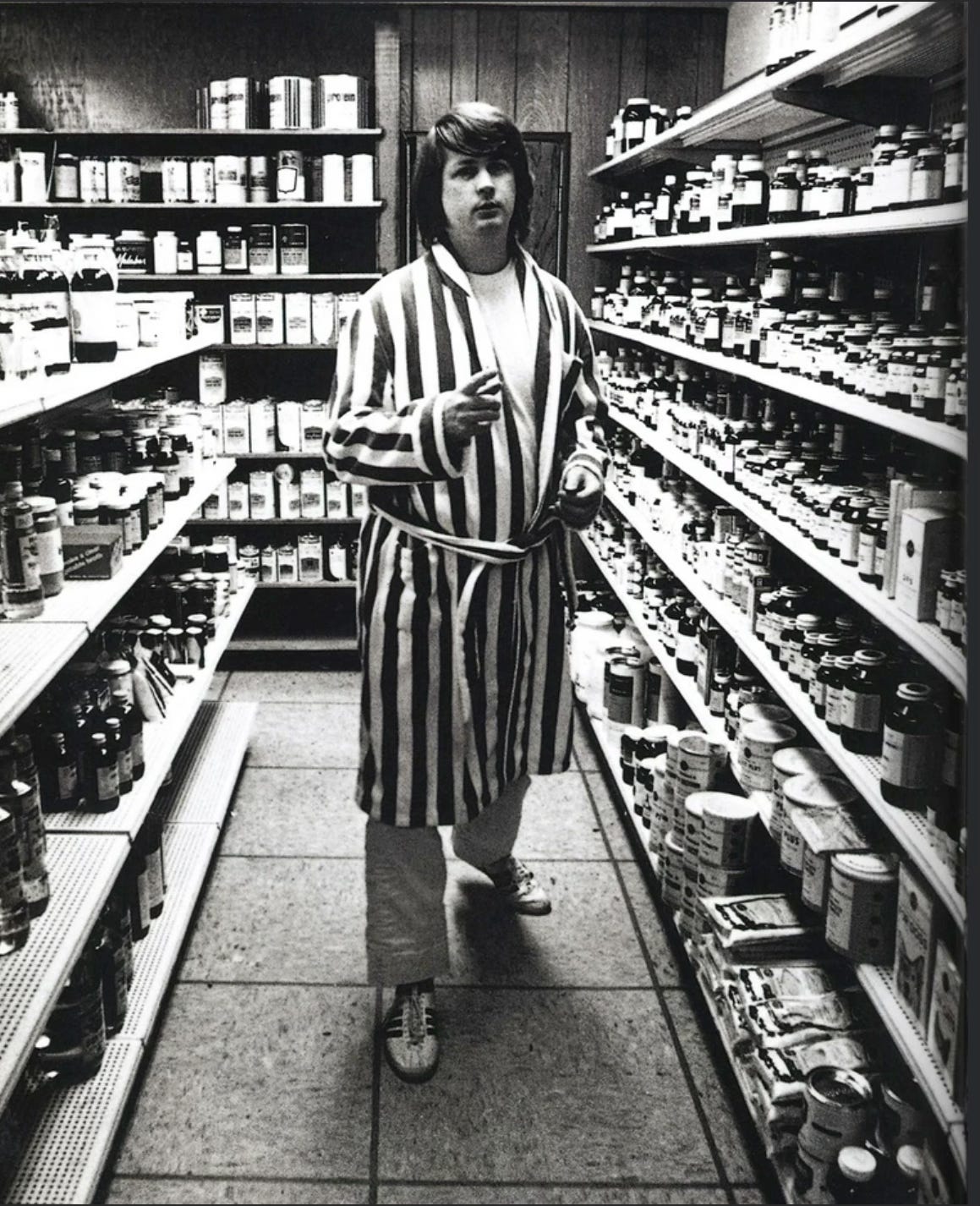
By that time, I’d wanted to explore the music before and after Pet Sounds, the songs beyond the singles. There’s plenty of great stuff in those eras, and the ones that caught my attention were what I’ve dubbed the exclamation albums: The Beach Boys Today! and Summer Days (And Summer Nights!!).
Both albums are filled with wonderful songs, many of them all but unknown to anyone but BB aficionados. I especially loved the ballads on side two of Today!, I found them the most affecting; one can see the influence of Burt Bacharach on Wilson. I’m a sentimental man by nature, and their wistfulness appealed to me. My favorite songwriters have a knack for observing the world and revealing how incredibly lonely it can be, but packaging it in something really lovely.
I think of Ray Davies and his character studies, such as “Waterloo Sunset.” Few narrators feel as lonely as that one. Observing, but not really participating in life. He lives through what he can see, like the lovers meeting every Friday night at Waterloo Station. He should feel alienated, but small joys keep him connected to his humanity. Maybe he’s projecting something on people.
But he’s at least making an effort to envision what their lives might be like. They’re not flat and pointless, but as rich as his own. Perhaps I conflate him with Brian Wilson because they both come from family bands and write about the experiences of their siblings.
For Ray Davies, this is evident in “Two Sisters,” which captures the different stages of life he and Dave were at. Ray, like Brian, was heralded as the leader and genius of the group. The Kinks and Beach Boys aren’t the same without Dave or Dennis, Carl & Mike. They were essential.
While not known for his lyrics as much, Brian Wilson can capture that feeling with the way he constructs songs. He doesn’t observe in the same way Davies did, but many of his songs evoke the feeling of sitting alone at the beach and people-watching.
His melodies, chord progressions, and skill at arrangement evoke feelings to achieve the same effect that other songwriters get with words. His feelings of melancholy allowed him to intuit some of the sadness his brother, Dennis, may have felt while chasing waves and women. Not in a bitter way as sometimes occurs in the socially maladjusted, but from a place of empathy and concern for others. Songs like “The Lonely Sea.”

“I’ve lived a very, very difficult, haunted life,” Brian Wilson said in 2007. And while that’s true, it was not without joy. “Don’t Worry Baby” is his attempt to capture the feeling that “Be My Baby” gave him. But it’s also bittersweet. Captures the feeling of when shadows grow long and fall starts to creep up on summer. Bittersweet, capturing the duality of life, which the book of Ecclesiastes chronicles. A time to weep and a time to laugh, a time to mourn and a time to dance. A time to live, a time to die.
The narrator has gotten in over his head by talking trash and accepting a challenge to a race. But even if he eats crow, she’ll be there to reassure him. I think we all want that level of support and love in our lives. That when you fall, someone will catch you. You’re never alone.
Brian Wilson said that he wanted the experience of listening to Pet Sounds to feel like being loved. Everything that can be said about that record has been said, but it still holds up. He was 23 when he made that album, and it captures the optimistic youth meeting the realities of adulthood. And how disorienting that can feel.
A piece of art that evokes that feeling for me is Christina’s World. Without knowing the background of the painting, my initial impression was that the young woman had been suddenly roused from an ill-advised midday nap. Her back is to the viewer, and she stares at a farmhouse far away. That distance feels too great to close; she appears like a swimmer dragged away from shore by a rip current. Close enough to hear the crowds on the beach, but too distant for any cry for help to be answered.
It reminds me of the loneliness Brian evoked in his music, how one can be so close to someone, in the early stages of love, yet already have a sense of its expiration date. All things must pass. All things must pass away. The woman who inspired the painter, Andrew Wyeth, was named Anna Christina Olson, and she suffered from a muscular disorder that prevented her from walking. She declined to use a wheelchair and would crawl everywhere. Though she inspired the painting, Wyeth’s wife Betsy provided the model, and that may be why she is rendered with such love and compassion.
Brian’s physical and mental disabilities and his abuse made his life very difficult. The pressure of being seen as the creative genius of The Beach Boys shot his nerves. And so did The Beatles. He first heard “Strawberry Fields Forever” while driving in his car. He pulled over the car and was overcome by what he was hearing. “They got there first,” is what we alleged to have remarked.
SMiLE ended up falling apart and material created for it was repurposed for later albums. Wilson’s vision of the album could never be quite reached by what he recorded. While few people are on his level as an artist, the feeling of one’s work falling shy of what one envisions is infinitely relatable. People with taste often struggle to translate the vision within their heads. And the gap between what they see and what they can do is designed to drive a person mad. It’s a miracle Brian was able to ride that line so high and for so long.
One thing that has come up in the wake of his passing is the contrast in how Wilson was treated versus how Sly Stone was treated. Stone passed away just two days before Wilson, and, like the late Beach Boy, built a career on stretching musical boundaries and finding happiness amid grief. A contradiction, like one enumerated in the verses of Ecclesiastes.
The music of Sly and The Family Stone is full of such joy, but also great sorrow. It engages rather than retreats from an ugly, hateful, and bigoted world. There’s a riot going on, but that doesn’t mean a life of only militancy and asceticism.
Like Wilson, Stone also suffered from mental illness and was treated more as a figure of ridicule than Wilson. He didn’t receive the same final act as Wilson, but perhaps his recent autobiography and the upcoming documentary will allow him to write the ending he has long deserved.
He didn’t receive the same accolades as Wilson, and no doubt, there is a racial element to that. The Beatles and The Beach Boys make music that demands to be taken seriously. Yet the music of their contemporaries in soul music is not afforded the same level of deference. And it’s not necessarily the fault of those bands. They are quick to champion those artists and talk openly of their influence. “Be My Baby” is a singular force in Wilson’s life.
I am reminded of a similar situation nearly twenty years ago, when Syd Barrett and Arthur Lee passed away within a month of each other. Syd Barrett’s mental decline was chronicled by his former bandmates on Wish You Were Here, especially after he stopped by the studio and nearly unrecognizable as the man who once led the band.
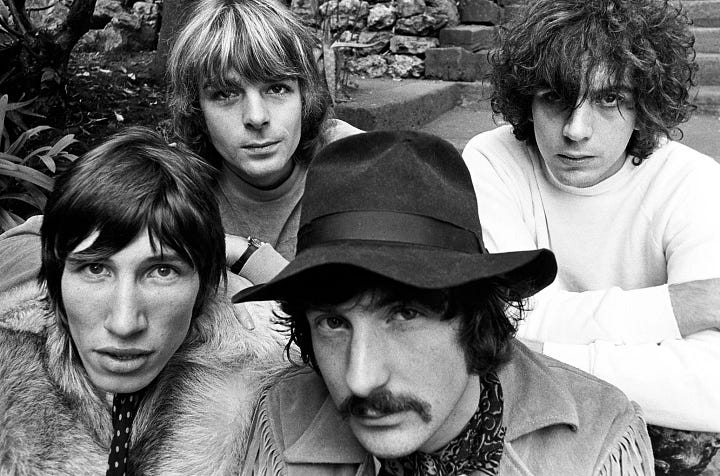
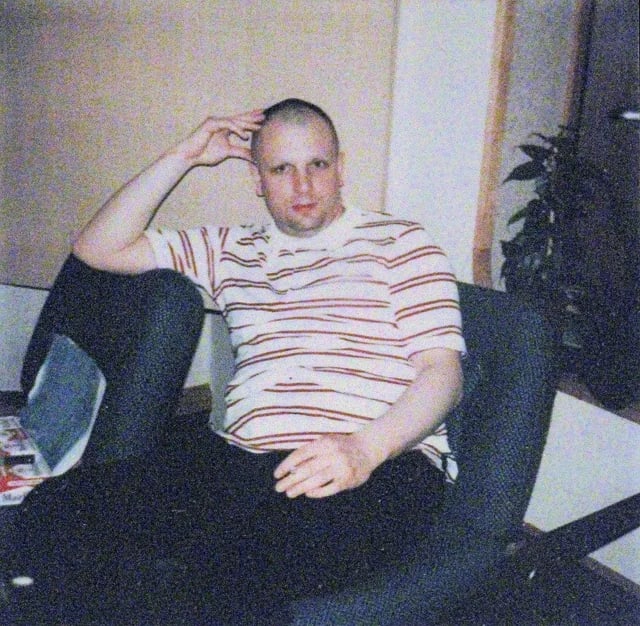
His head shorn of his dark curls, he had put on weight. Overuse of acid left him distant and removed from the world, and acting with eccentricity. He was no longer able to recognize people he knew. He withdrew from the world and spent his life gardening and painting. His health declined, he suffered from ulcers, and eventually died of pancreatic cancer on July 7, 2006. He was the poster boy of acid casualties.
The distance between the world and himself reminds me of what Matt Everitt wrote in his book on his BBC Radio series, The First Time With… “Every time I’ve interviewed Brian, he seems a little further away. It’s like spotting a star in the sky that you’re told is gone, but you can still see how it was millions of years in the past. The genius shone out of Brian Wilson for so long and so powerfully, that everyone felt it. Eventually he started to burn himself out and collapse, so what we see now is an echo of what he was, but the source of light that’s still reaching us from all those years ago is so brilliant, we’ll hear him forever."
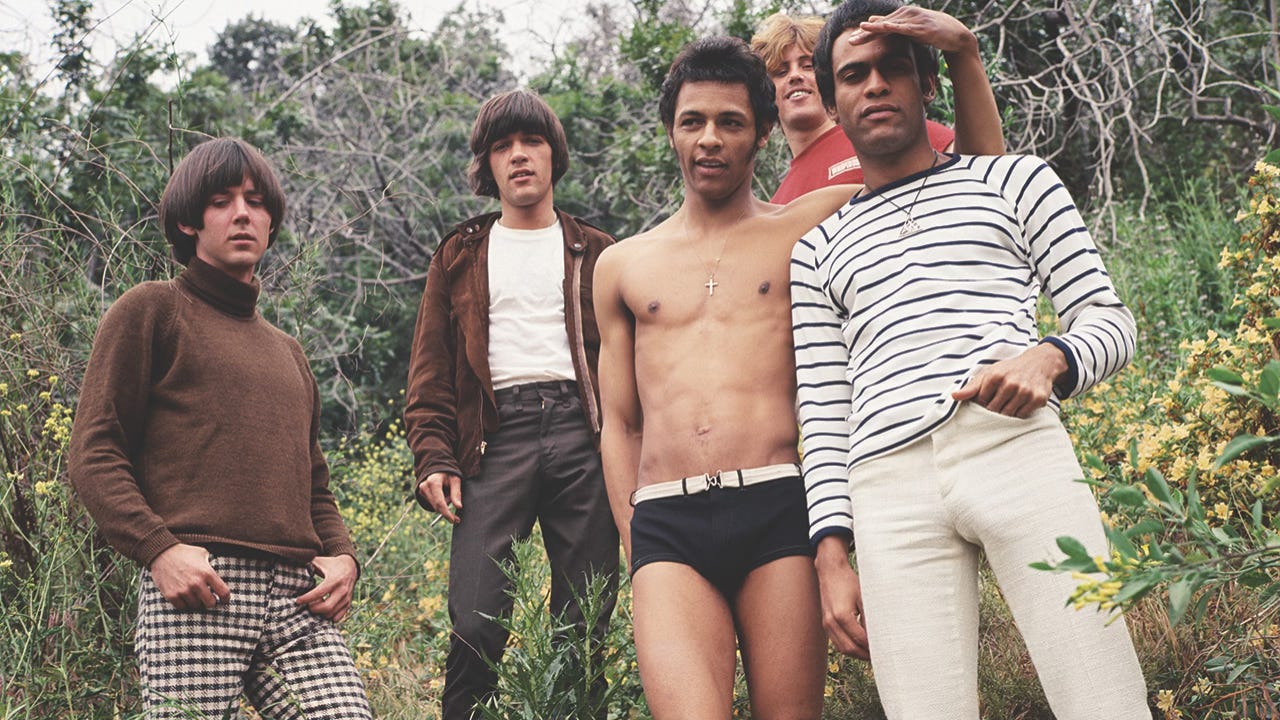
Arthur Lee had an arc more like Brian Wilson. Like Wilson, he was a significant figure in the Los Angeles music scene of the 1960s. Tough Love was not as popular as The Doors or The Byrds, but a beloved cult act that produced a magnum opus: Forever Changes.
A 1967 album that captured the dark side of the hippie dream, before the storm arrived and violence shattered the dream of a kinder, gentler, more loving world. He dealt with drug issues as well as mental health struggles. He fell victim to California's three-strikes law and was imprisoned for eight years for allegedly discharging a firearm, finally seeing the light of day in the early 2000s, when he was released.
Like Barrett, he was praised for his body of work in the 1960s and for his influence on the music that followed. Unlike Barrett, he was able to bask in it and perform his music to adoring fans in the way he wanted. “I am the music. In 1967 I thought Forever Changes was going to be my last words. My last words to this world would be forever changes because this world forever changes. If someone asked me if I was on my way to another planet or another incarnation, or whatever, and they asked me how I feel about earth, I'd say, "forever changes.” The lines in “Live And Let Live” have added poignancy, “Served my time/Served it well/You made my soul a cell.” Lee died of leukemia on August 3, 2006.
As my friend Eddie discusses in his piece, these legends pass on, and there is no one to fill the vacancy the leave behind. As my former professor Glenn Gass puts it, it’s like redwoods falling. This is old-growth forest. There is no replacing them. The soil has become poisonous and dead and can no longer nurture the saplings that grew in the shelter of these titans. One day, when the last one falls, we will be left with an empty field of ashes and stumps, but at least we will be able to use machines to create content cheaply without risking anything in the process.







